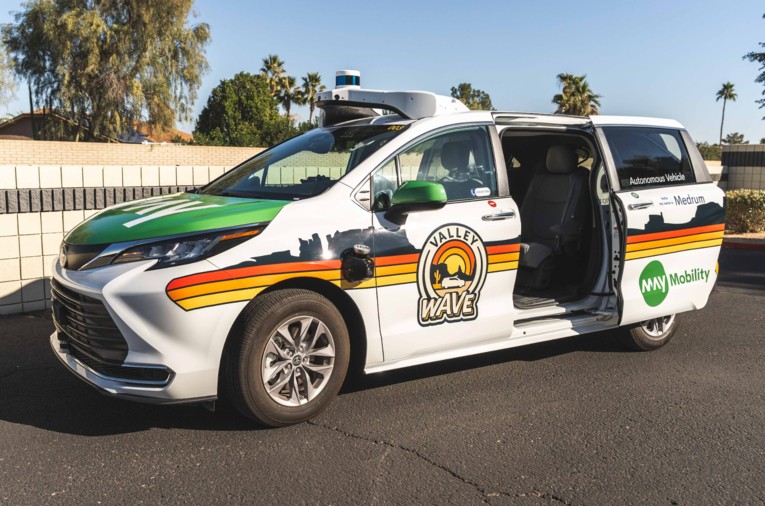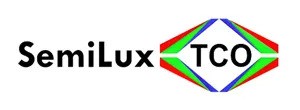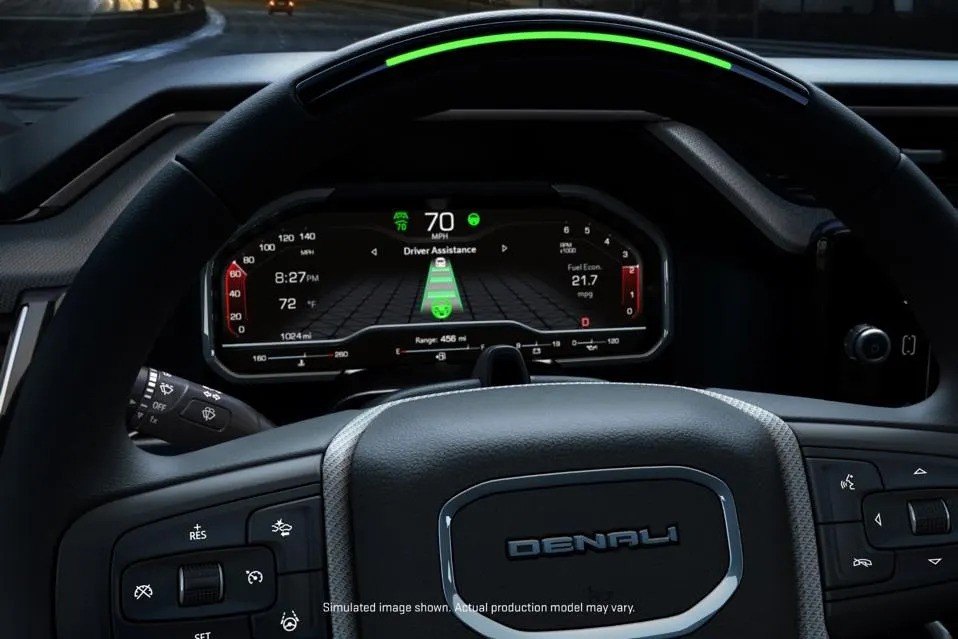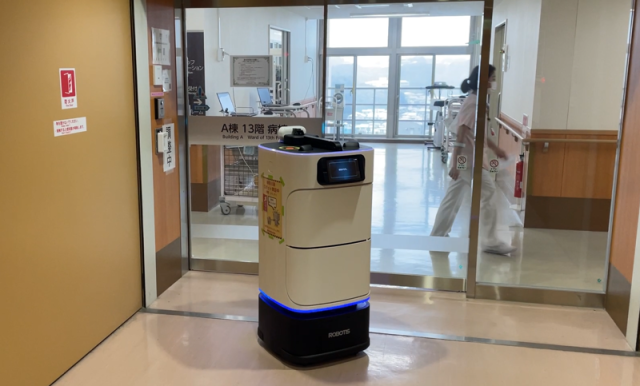
Vueron Newsletter
No. 91
2024.02.20
| Announcing Luminar Day: A New Era on April 23, 2024 | ||
| Michigan-based AV startup May Mobility reduces workforce by 13% | ||
| GM’s Hands-Free Super Cruise Expands To 750,000 Miles | ||
| Robot maker Robotis provides autonomous delivery robot to Japanese hospital |
1. Announcing Luminar Day: A New Era on April 23, 2024
-
- Luminar announces Luminar Day event on April 23, 2024, for its broader community.
- The event will be held virtually, spanning from the factory in Monterrey, Mexico, to its AI and software center in Silicon Valley.
- Luminar will cover the Start of Production (SOP) for Volvo Cars, marking the first global production vehicle launch with Luminar’s technology.
- Volvo’s next-generation vehicle lineup will feature Luminar’s technology, starting with the EX90, where it will be standard worldwide.
- Luminar will unveil its next-generation LiDAR platform for mainstream consumer vehicle adoption, following its breakthrough Iris LiDAR platform introduced in 2019.
- The company will showcase the next generation of its broader product portfolio, including data and AI, semiconductors, mapping, and other key catalysts for exponential growth.
- Additional event details and participation information will be provided in the coming weeks.

The unveiling of the next-generation LiDAR platform demonstrates Luminar’s commitment to innovation and making autonomous driving more accessible. Luminar’s broader product portfolio showcases its diverse range of solutions beyond LiDAR, indicating its potential for growth and leadership in the industry.
2. Michigan-based AV startup May Mobility reduces workforce by 13%
-
- May Mobility, an Ann Arbor-based autonomous vehicle company, confirmed a reduction in its workforce by about 13%.
- The company cited a need to focus on its highest business priorities as the reason for the layoffs.
- Affected employees are being provided compensation, health insurance, and support to find new career opportunities.
- The layoffs follow a $105 million Series D funding round in November, bringing the total funding to about $300 million.
- The funding was intended to support technology and service growth in the United States, Canada, and Japan, aiming toward profitability.
- NTT Group, a Japanese telecommunications company, led the Series D funding round for May Mobility.
- This downsizing at May Mobility coincides with challenges faced by other autonomous vehicle companies.
- Cruise LLC, a unit of General Motors, appointed a new chief safety officer amidst efforts to rebuild trust after a pedestrian crash.
- Waymo LLC is encountering resistance in California regarding its expansion of robotaxi service outside San Francisco, following a recent incident where a Waymo vehicle struck a cyclist, causing minor injuries.

Despite significant funding rounds, May Mobility’s decision to reduce its workforce highlights the challenges in the autonomous vehicle industry. The move indicates a strategic shift towards focusing on core business priorities and achieving profitability.
3. Semilux International Ltd. and Taiwan Color Optics, Inc., a Taiwan-based provider of LiDAR and ADB components and solutions, together with Chenghe Acquisition Co. Announce Closing of Business Combination
-
- Chenghe Acquisition Co. completes its business combination with Taiwan Color Optics, Inc. (TCO) and Semilux International Ltd.
- TCO is a Taiwan-based provider of LiDAR and ADB components and solutions.
Semilux International Ltd. is a newly formed holding company based in the Cayman Islands. - Ordinary shares of Semilux International Ltd. will begin trading on the Nasdaq Capital Market under the ticker symbol “SELX” on February 16, 2024.
- The Business Combination was approved at a special meeting of Chenghe’s stockholders on February 2, 2024.
- Upon the closing of the Business Combination, trading of Chenghe’s Class A ordinary shares and units will cease.
- Dr. Yung-Peng Chang, Chairman of the Board, Director, and Co-Chief Executive Officer of Semilux, expresses gratitude to stakeholders and highlights TCO’s history of providing laser modules and components across various sectors.
- TCO aims to capitalize on the autonomous vehicle market, advancing its LiDAR and ADB technologies to meet safety standards and expand its U.S. customer base.
- Semilux intends to leverage Taiwan’s semiconductor ecosystem to deliver high-quality, cost-effective products and enhance growth.
- Mr. Richard Qi Li, Chairman of Chenghe Acquisition Co., emphasizes the innovative solutions and strong partnerships of Semilux in the autonomous vehicle market, anticipating continued business growth and sustainable shareholder returns.

The completion of the Business Combination signifies Semilux’s entry into the public market and its strategic focus on advancing LiDAR and ADB technologies for autonomous vehicles. TCO’s expertise and history in providing laser modules and components position Semilux to capitalize on the growing demand for safety standards in the autonomous vehicle industry.
4. GM’s Hands-Free Super Cruise Expands To 750,000 Miles
-
- General Motors (GM) introduced the Super Cruise assist feature in 2017, allowing drivers to go fully hands-free on certain divided highways.
- Super Cruise’s coverage has expanded gradually, reaching over 400,000 miles by 2022 and projected to expand to about 750,000 miles by the third quarter of 2025.
- Unlike Tesla’s AutoPilot, Super Cruise is geofenced and meant to be supervised by a human driver, utilizing infrared driver monitor cameras to track driver attention.
- GM contracted with Dynamic Map Platform to provide high-resolution LiDAR scans for detailed mapping, facilitating predictive speed control and safety features.
- Super Cruise’s road network expansion includes rural undivided highways, with quarterly map updates adding approximately 40,000 miles until reaching 750,000 miles.
- Although GM canceled the next-generation Ultra Cruise, some planned features like traffic signal recognition may be integrated into future Super Cruise updates.
- Super Cruise’s road network expansion process involves road surveys, classification of road types, testing, and validation before updates are pushed to customers.
- Super Cruise has a strong safety record, with no crashes attributed to the system in 160 million miles of driving.
- Recent Super Cruise features include support for towing, automatic lane changing, collaborative steering, and driver-requested offset.
- GM plans to expand Super Cruise availability to more models, including the 2025 Chevrolet Equinox and Equinox EV, Blazer EV, Cadillac Escalade IQ, and other upcoming models.

Continuous updates and expansion of the road network demonstrate GM’s commitment to improving Super Cruise’s capabilities and accessibility. GM’s focus on expanding Super Cruise availability across its vehicle lineup indicates its strategic importance in the company’s future mobility initiatives.
5. Robot maker Robotis provides autonomous delivery robot to Japanese hospital
-
- GAEMI, an autonomous delivery robot developed by South Korea’s Robotis, has been deployed at a general hospital run by Japan’s Tokushukai medical group.
- The robot can travel between floors using an elevator and is currently delivering medical records and convenience store products within Shonan Kamakura General Hospital.
- Robotis aims to expand the robot delivery service to the entire Tokushukai group based on the results of the test run.
- The robot’s deployment reflects the increasing emphasis on service robots in Japan due to rising labor costs and difficulties in finding employees.
- Robotis CEO Kim Byung-soo highlights the company’s efforts to establish a presence in Japan’s service delivery robot market by supplying GAEMI to various sectors.
- Robotis participated in Japan’s largest hospitality exhibition, “HCJ2024,” to showcase its robot solutions.

The deployment of GAEMI at a Japanese hospital underscores the growing adoption of service robots in sectors like healthcare, driven by factors such as labor costs and labor shortages. Robotis’s expansion efforts in Japan highlight the company’s ambition to capitalize on the demand for service delivery robots and establish itself as a key player in the market.
*Contents above are the opinion of ChatGPT, not an individual nor company

